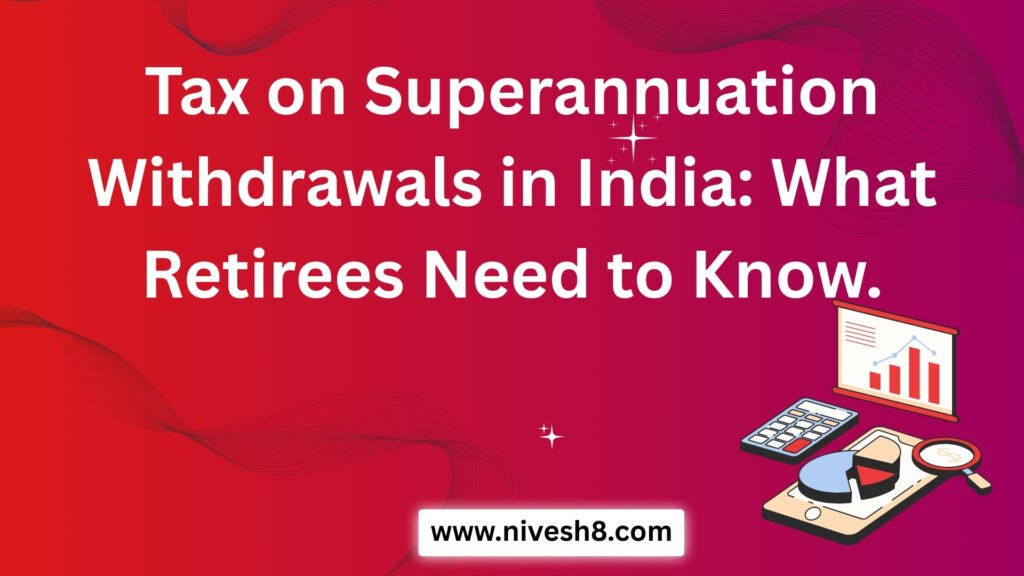Many employees, particularly those of private companies, get a retirement benefit known as superannuation. The company makes contributions on your behalf under this long-term savings plan. Many, however, question what the tax on superannuation withdrawals is when it comes time to retrieve the money. Let us dissect it in simple terms.
Describe a Superannuation Fund.
A superannuation fund is a retirement benefit made possible by employer fixed percentage pay contribution. While some businesses let staff members participate as well, usually a reputable insurance company or fund manager handles this. You get this at retirement or, occasionally, earlier under particular circumstances.
When might one withdraw from a superannuation fund?
You may withdraw from your superannuation fund in the following circumstances:
- During retirement at that point
- Should you quit or move jobs
- In regard to death or disability
- Usually at the superannuation age, either 58 or 60 years
Tax on Withdrawals from Superannuation: Which Rule Apply?
When and how you remove the money determines the tax on superannuation withdrawals. As follows:
- Pullout from Retirement
- Tax-free, one-third of the whole amount can be commuted—that is, taken as a lump sum.
- Usually purchased as an annuity—a monthly pension—the remaining two-thirds is taxable as regular income.
- Tax-free, one-third of the whole amount can be commuted—that is, taken as a lump sum.
- Pulling out on resignation before retirement
- Under head “Income from Other Sources,” the whole amount taken is taxable.
- Under head “Income from Other Sources,” the whole amount taken is taxable.
- Annuity Get After Retired
- Per your income tax slab, monthly annuity payments from the superannuation fund are totally taxable.
- Per your income tax slab, monthly annuity payments from the superannuation fund are totally taxable.
- Disability or death
- Should the employee’s death be the cause of the withdrawal, the nominee gets tax-free money.
- Should a disability arise, the withdrawn sum could also be tax free.
- Should the employee’s death be the cause of the withdrawal, the nominee gets tax-free money.
An illustration might be
Imagine that at retirement your superannuation fund is ₹15 lakhs. You pay ₹5 lakhs as a lump sum one-third free from taxes. Purchasing an annuity with ₹10 lakhs means you will pay taxes on the monthly pension you get.
Important Notables to Recall
- Check always whether your company has an approved superannuation fund.
- Tax regulations vary depending on whether one is withdrawing before or after retirement.
- Annuity income is handled much like pay or pension.
- File Form 10C if you are claiming fund benefits.
Thoughts on Final Notes
Plotting your retirement depends on knowing about tax on superannuation withdrawals. After you stop working, a smart withdrawal plan can help you keep taxes paid under control and enjoy consistent income. If you’re not sure how to get at your superannuation fund, talk to a tax consultant.



